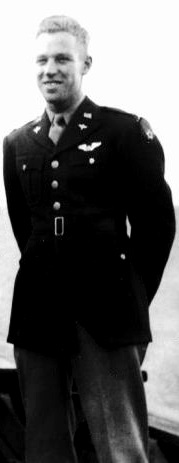
A military death — “with honor” as the saying goes — receives an unquestioned standing in family history. We are stunned at the loss, ask ourselves whether we would have been willing to take the same risks when asked, and place the loss in a category of its own. There is an injustice in this. A service death or disability is in some sense involuntary. At times it may be a sacrifice made for a campaign or even an entire war whose purpose is later questioned by historians. But the main unfairness, if it can be called that, is that in an instant — in the case of a death — a young person is memorialized in family history, whereas others whose lifetime of dedication to other causes go unnoticed. This is true even for career military, civil service and defense contract workers who labors may edge into zones of sacrifice.
That said, the remarkable storyteller’s intersection of military and personal history is like none other. The story of Allan Brown Underwood, lost in a bombing raid over Germany in 1944 is our family’s story.